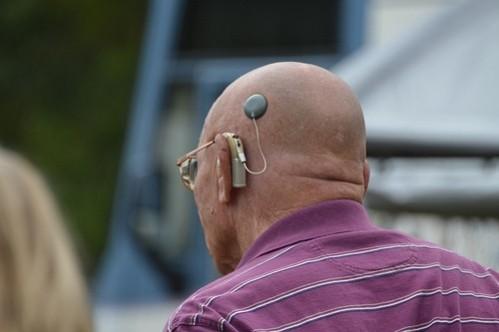
New drugs that have helped in the prevention of noise- or drug-induced hearing loss in mice and zebrafish have the potential to benefit millions of people around the world, scientists say.
Researchers from St Jude Children's Research Hospital in Memphis tested multiple compounds that protected cochlear cells from the chemotherapy medication cisplatin, which causes irreversible hearing loss in up to 70% of patients.
One particular compound, named kenpaullone, was found to be the most effective in mitigating the harmful effects of cisplatin on hearing cells by inhibiting an enzyme called cyclin-dependent kinase 2 (CDK2).
The research is detailed in the Journal of Experimental Medicine.
Over 360 million people around the world suffer from hearing loss, caused by noise, chemotherapy, antibiotics, viral infections, genetic defects or aging.
There are no US Food and Drug Administration-approved drugs available at present to reverse the condition.
"The robust protection conferred by one-time local delivery of kenpaullone suggests that CDK2 inhibitors may transform the clinical prevention and treatment of cisplatin- and noise-induced hearing loss in patients," said Dr Jian Zuo from St Jude Children's Research Hospital.
"Modifications of the treatment regimens, additional optimization of the delivery methods via the use of hydrogels, and structural modifications of the compounds via medicinal chemistry could ensure even better results with CDK2 inhibitors in treating hearing loss in humans."
Injecting kenpaullone into the middle ear of mice was also found to protect the cochlear cells against noise exposure as loud as 100 decibels.
Long or repeated exposure to sounds above 85 decibels can cause hearing loss in humans.
"Given that 100-dB noise is in the range of noise insults commonly experienced by people in our society, kenpaullone could have significant clinical application in treating noise-induced hearing loss," Zuo added.
















